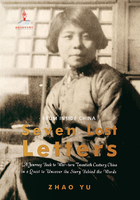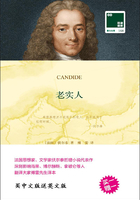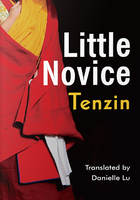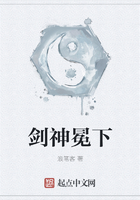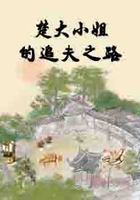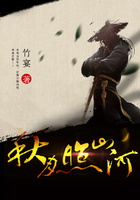In the blink of an eye, 600,000 backyard furnaces were built,with 90 million people working on them; starvation got so bad that even the cadre in charge of the food supply got sick from malnutrition; "Peng Dehuai's ultra-rightist positions are miles beyond even what rightists would consider acceptable!"; in the spring of 1960, a letter that told of unimaginable suffering was sent to the State Council, and placed on Xi Zhongxun's desk; Zhang Chunqiao's On eliminating the privileges of the bourgeoisie attracts Mao Zedong's notice . . .
11
In 1958 another aspect of the Great Leap Forward reached its fever pitch - the nationwide backyard furnace movement. The then Vice-Publicity Chief of Lufeng County Party Committee, Wu Zengren remembers that in September of that year the Committee created the "Steel Troop" under the leadership of the county's Party secretary. The county's every cadre, teacher, student, peasant and resident, some 90,000 people, was mobilised to cut wood in the mountains to fuel the furnaces. To carry out the steelmaking work, the county appropriated any and all metal it could find and clas-sify as scrap. "And so they smashed up pans, tore out windows, removed door knockers, even the rings in bulls" noses were removed. All metal tools had to be handed over; in one village when a cadre tried to take a carpenter's tools the carpenter threat-ened to use his axe to kill the cadre. After being chased for a mile or two, the cadre realised it was best to give up."
Wu also remembers:"I saw with my own eyes all the trees being cut down and all the fields being left untended. The common people's complaints fell on deaf ears. In the end, all the furnaces produced that year was over 400 tonnes of pig iron and slag. Most of it was substandard, and just got piled up and left to waste, like a huge black sore sitting on the side of the road." The back-yard furnaces proved to be a turning point, destroying completely young county Party Secretary Xie Fei's blind faith in the five-star red flag. After, he took a much more pragmatic approach to applying instructions from above to his grassroots work.
In Lufeng, with so many of the able-bodied people up in the mountains cutting trees, the rice crop ended up rotting in the fields with no-one to harvest it. All the food stored in communal canteens had been eaten up, and there was not a trace to be seen of the vast yields promised by higher cadres. The work of estab-lishing granaries had been neglected, and by the spring of 1959, peasants were living off wild-growing plants and developing symp-toms of edema, the long-avoided spectre of starvation once more rearing its ugly head. At least this time, unlike in the old society, no-one was getting fat: everyone, even up to the central leaders, was having to subsist on less. Mao, Liu (Shaoqi), Zhu (De) and Zhou (Enlai) set an example and cut meat from their diets. This was one of the main reasons why the peasants" faith and support for the Communist Party never wavered.
The result of the famine in Lufeng was so bad that in Lian County, even the local offcial in charge of food distribution, Wu Wenrong, got sick from edema. When the county's Party secretary found out about this he sent 50 jin's worth of ration vouchers to Wu, who refused them, saying "If I abuse my power and exceed my rations, I have no right to stand before the masses." Word got out of his refusal, which moved both masses and cadres deeply. Similar examples occurred throughout the country, the uprightness of the Party and honesty of the government at the time being remem-bered even today. But looking back now, it can be seen that the rash policies of the "left-deviationists" and the ruthless factional struggle within the party put stretched people's abilities to remain loyal and cohesive, which caused no end of trouble. Many years later, people were still tenacious in their relative cynicism.
One day at the end of 1958, during a county standing committee meeting, publicity chief Xie Fei took Wu Zengren and Peng Dasheng on a tour of the local area. All around them were uncul-tivated brown fields, across the river the once-emerald-green mountain was barren and bare. Looking out at a nearby village, not even a wisp of smoke gave evidence of habitation. Xie Fei was troubled, sharing his fears with his fellows:"Ten years' worth of wood, all destroyed in an instant. If this is allowed to continue, it'll take more than ten years to win the masses' trust back; they might never forgive us."
Wu Zengren knew Xie had always been cautious in what he said, so was surprised to hear him opening up and revealing such deep concerns. He and Peng couldn't bring themselves to speak against the situation, and so just parroted reassuring slogans in echo of one another. Xie waved his hand dismissively to get them to stop, and with moist eyes said very seriously:"Dismissing the problem won't make it go away. We have to get the county committee's approval to hold a meeting of all local publicity chiefs and start emphasising'seeking truth from facts'. Otherwise, all this will only get worse."
He stuck to his conviction, calling all People's Commune vice-secretaries and publicity committee members in the county to an emergency publicity meeting. At the meeting he gave a speech in summation, saying:"In publicity work, we have to empha-sise 'seeking truth from facts'. Being unwilling to admit mistakes is itself a grave error. Times are obviously hard, and nobody has enough to eat. It's now at the point where even salt, firewood, fuel, brown paper and fertiliser are being rationed, and the cloth rations are almost exhausted - I've seen the masses queuing up at the distribution centres to buy Japan-made nylon bags that they then use for clothes. The aesthetes dye their bags black and wear them; those who are less picky just put them on as is. I don't know if you all saw, on the street there was a man wearing clothes on the front of which was written 'Urea, net weight 40kg'. Everyone's suffering, and telling everyone that life is fine is not 'seeking truth from facts . . .'"
"The Publicity Department's work has been wrongly directed . . . for this I take principal responsibility. What exactly has gone wrong? We disseminated utopian dreams as if they were the revolution. We promoted feudalistic superstitions as if they were scientific fact, empty bombast as revolutionary ardour, unques-tioning obedience as the enthusiasm of the masses. For example, I once took everyone here to a mountain slope where characters were being carved that you could see from miles away. Then there were the paintings we made of a plane flying past a mountain where the sugar cane was growing higher than the plane, or where commune members had a pig so fat it took a scaffold to wash it. We were wrong to do that; heroic and inspiring images have their place, but to produce them to the exclusion of all others is to deceive the masses, the cadres and the higher offcials all. We all need to do some soul-searching, I think . . ."
It's easy to imagine the shock caused in Lufeng by this speech. Many publicity cadres felt as if they'd been forcibly woken up from a bad dream, discussing the speech with each other in amazement after the meeting. What they didn't know was that compared to the objections raised by Marshal Peng[1] at Mount Lushan, Xie Fei had been positively meek and reserved, and tried much harder to avoid provoking the ire of superiors.
The young leader of the county Party committee had begun to admit to the many policies that had ignored scientific reality, lead to disaster on the ground and created contradictions between the cadres and the masses. He wasn't looking to find some sweeping ideological justification, only to fix the problems in front of him one by one. Whatever slogan or movement would do the most to reduce the people's suffering and bring back prosperity would be one for which he would exert his all. As for the political risk to himself, he'd only ever stepped forward at vital moments (such as defending "Sweet Potato County'); normally, he kept a very low profile.
Now though, the force of all the "anti-Right-Deviationism"attacks couldn't dissuade him.
He travelled all over the county, using the local dialect he'd spoken since birth to tell people to report things as they were. At the same time as he was spending all day down in the villages, he was encouraging cadres to spend time with the masses every day, and resolve problems as they emerged. He couldn't help but be frantic, his usual composure and calm having been replaced by a worried, frenetic demeanour. He even got to the point where a quick glance at his expression and demeanour would tell you if he'd been out to a village and discovered something in the last two days or not. As well as his publicity work he'd been placed in charge of several People's Communes, but through his travels came to know the signs of the most common problems; a few sentences was all he needed to understand the situation. With his example to urge them on, no-one dared be lazy when he was around.
In the Donghai Commune, of which Xie Fei was the director, there was a production brigade named Shuiquan. A small river ran from the commune out to sea; the area where freshwater met salt was teeming with microorganisms, and so the seafood from this area was especially bountiful. Shuiquan had historically been a half-farming, half-fishing brigade. The peasants relied on the catch from the sea and the oysters from the mudflats to supplement their diet, and most could support themselves even during the famine.
When they were constructing hydraulic projects, the govern-ment had been unstinting in its spending, investing huge amounts and mobilising human power to build a dam where the small river met the sea. The original intention had been to trap saltwater in as the tide went out, but then it was decided to use it the other way, turning the mudflats into fields and supplementing food produc-tion. But the peasants hadn't come here to congratulate the cadres on their achievements - they'd come to cause trouble. An angry crowd had descended on the county offce building, demanding that the recently-completed dam be destroyed. Xie Fei took people to the scene to investigate, and came to learn that not only had the intended increase in production not happened because nothing could be planted in the heavily alkaline soil of the mudflats; after the sea had been pushed back the catch of seafood and molluscs had disappeared, and the livelihood that had kept the area's people fed for generations had been ruined.
As he stood on the dam, Xie stared out blankly at the horizon, shaking his head and sighing under the weight of his cares. He was in a dilemma: even the provincial committee was waiting to hear the result of the Shuiquan team's protest. The county committee had sent him out here, they were not totally unaware of the situ-ation. When the motion had been first raised, in 1957, it received some objections, but the opinions of the local people had not been sought. Now that food production hadn't increased and the people's livelihoods had been affected, it was clear that the project should be abandoned, but to do so would be incredibly convoluted. The county committee had sent him to investigate personally, but every-thing had been agreed on before his report was even to be published. There were people on the committee who wanted to keep the dam, regardless of its effect on the locals. If he reported the truth, there would be only one course of action he could suggest: tear down the dam and let things go back to the way they were. But to tear down this "anti-flood project" would be tantamount to admitting failure, which would mean someone had to take the blame.
Xie considered his position again and again. Eventually his report went as follows:"When construction on the dam was begun, insuffcient attention was given to the direct consequences on the inhabitants. Despite the advantages of flood control and land recla-mation, in order to avert future undesirable consequences, the project should be dismantled, allowing the sea to flow back in and seafood production to resume." His stance was clear, his report accurate and his evidence conclusive. Once published, the report rose up to higher levels, the cadre in overall charge eventually deciding to adopt Xie Fei's suggestion, reluctantly destroying the dam. The area soon regained its former productivity.
The case of the dam showed his conviction in doing away with bad decisions. Another case in another fishing village was to show his determination to uphold good ideas.
Lufeng was a principally mountainous county, with very little coastline and few people living there. Changhu production brigade was so remote as to have been almost forgotten. The area had been Red even before Liberation, having served as a communications channel between Hong Kong and the Haifeng-Lufeng base. It had often been invaded and swept by enemy forces, with the local fish-ermen paying a high cost. Many had had fingers or ears chopped off as punishment, but the area had always remained loyal and fought for revolution alongside the underground Party. Under the unending attacks of the enemy, the area had been almost emptied by the time Liberation came, and even a decade later, a village that once held 3,000 still had only a few hundred left, its former productivity a long-vanished dream.
This commune came to Xie's attention because at the time there was a real problem of people running away to Hong Kong, which was worsening as time went by. He visited Changhu several times to investigate, but was unable to put a stop to the problem. When they'd been being brutalised by reactionaries the people had remained loyal to the Party despite the threats to their own people, so how, a mere ten years after Liberation, were so many of them suddenly willing to flee to capitalist Hong Kong? Xie investigated thoroughly, and finally came to understand. There were no fields to plough in Changhu's territory, not that the people there knew how. Their entire livelihood was dependent on the sea, but catches had been failing since Liberation and most people could no longer get by. They were just about able to feed themselves, but there was no surplus that could be sold to pay for new boats or tools. If matters were to continue, and the small fishing fleet that had endured for generations kept dwindling, the number of people using them would too. Actually going out to fish was a rare luxury for most. As one fisherman put it:"We've got too many people and not enough boats. How could we not be poor?"
The existence of these people was precarious. They couldn't even raise ducks and geese, never mind go fishing, because it was unrelated to field production. If Xie Fei wanted to undo this situation and get the village growing again, he couldn't just make fine-sounding declarations. He had to really convince them. It didn't take long for Xie to come up with a new idea. He set the production brigade to studying Mao Zedong's On the Handling of Contradictions Amongst the People. This classic work was fresh and convincing. The story of a cadre using it as a teaching method soon spread - what was his aim?
He said to the fishermen:"What is the principal contradiction that threatens this village? Fundamentally, there are lots of people and few boats. The most important part of this contradiction is that there are few boats. Resolving this contradiction thus hinges upon building new boats for the brigade's use. Once there are more boats, the crux of the contradiction will be resolved. Therefore, resolving this contradiction requires the building of several tens of boats." Those present at the study group understood his meaning straight away. Studying theory was all well and good, but it was when theoretical study gave answers to concrete problems that it became useful. The fishermen were happy; not only had they understood his point, they agreed with it.
Xie had touched upon a way of using Marxist classics to get his political ideas across. They became a weapon in his fight to get things done. If grassroots cadres really wanted to bring about improvements, this was an essential part of the process. After Changhu it was used by cadres throughout Guangdong, and particularly in the Pearl River Delta area. The most common utter-ance out of Xie's mouth was an exhortation to the people to report problems truthfully. In Changhu, he'd had a breakthrough.

